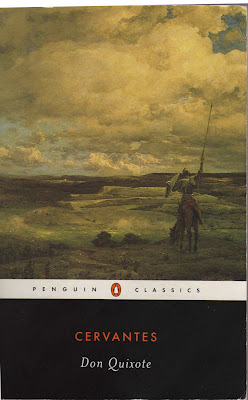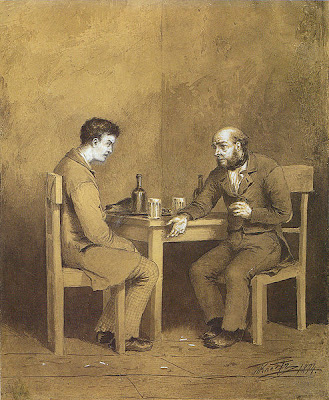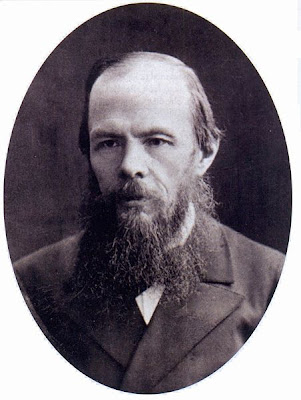Yes, I got my email from LSAC on Monday (12/29) my score actually dropped a point this time around. "Oh well." I'm not the first person to use the phrase and certainly not the last.




 rough. But after many phone calls and even a few emails, we haven't heard anything from our pals in the lost and found department. So it looks like it's time to dip into Maria's college fund and bust out a new one. I appreciate your condolences on my behalf. (And no, Jon, Christy did not rebuke me for my misfortune!)
rough. But after many phone calls and even a few emails, we haven't heard anything from our pals in the lost and found department. So it looks like it's time to dip into Maria's college fund and bust out a new one. I appreciate your condolences on my behalf. (And no, Jon, Christy did not rebuke me for my misfortune!)

 That's right, kids. After hours, months, and years of toil, my undergraduate career is finally over.
That's right, kids. After hours, months, and years of toil, my undergraduate career is finally over. pleasure, here's the full list, in alphabetical order, that I applied to. Presumably one or more will accept me:
pleasure, here's the full list, in alphabetical order, that I applied to. Presumably one or more will accept me:| Chicago |
| Columbia |
| Colorado |
| Cornell |
| Duke |
| Emory |
| Georgia |
| Georgetown |
| George Washington |
| Harvard |
| Michigan |
| Minnesota |
| NYU |
| Northwestern |
| Oregon |
| Pennsylvania |
| Stanford |
| Temple |
| Vanderbilt |
| Virginia |
| Washington U |
| Washington & Lee |
| William & Mary |
 folded!!)
folded!!)

 Bureaucracy: a system of administration marked by officialism, red tape, and proliferation, says Merriam-Webster. Don't forget to add large headaches and a heeping helping of my unbridled rage!
Bureaucracy: a system of administration marked by officialism, red tape, and proliferation, says Merriam-Webster. Don't forget to add large headaches and a heeping helping of my unbridled rage!

As long as your tone is well dressed and sweaty enough, it doesn't matter what ya say!




Frankenstein is a classic example of the typical egg-headed poindexter of the Romantic era. He is reclusive, brilliant, high-minded, and, to make an understatement, ambitious. After all, your average humanist would not be nearly mystical, eccentric, or ingenious enough to dig up human remains out of sundry grave yards and magically turn them into a composite and living creation. On the other hand, however astronomically brainy Frankenstein is, it’s hard to imagine a Sancho Panza or other typical “fool” who would be foolish enough to put together a living, breathing, and potentially destructive creature, without calculating the risks of creation or even contemplating the creature’s future. Indeed, so caught up is Frankenstein in his own genius and ability to become the veritable god of a new “species” that he flees (oddly, without a screech) from the “wretch” which he took months to create in a brief, shocked, and terrorized flight much like the air-headed protagonist of Michael Jackon’s popular music video “Thriller.” How could any self-proclaimed or at least self-imagined mastermind be so short-sighted as to believe that his gaudy creation would instantly turn picturesque, charming, and beautiful just like Easy Mac? It seems rather apparent from this pathetic example that Frankenstein’s great hubris (or idiocy, you decide) is his self-absorption and absolute disregard for others. Perhaps the most ironic and yet sadistically hilarious exposé of Frankenstein’s self-centered nature occurs over various chapters as he continuously assumes that the monster is going to murder him on his wedding night, “Au contraire, Victor!” Even in the midst of his hyperbolic grief, Frankenstein can think of no one but himself. What is difficult to decipher, though, is whether Shelley is aiming at the heart of everyday Romantics themselves or simply at the egocentric characters that they often promulgate.
Flaubert’s Madame Bovary seems to depict generally the same egocentric hubris with Emma Bovary; just that Flaubert does it by portraying an average Joe Shmoe rather than a super-mysterious and insanely eccentric Isaac Newton figure. Truly, everything about Victor Frankenstein is grandiose. From his upper-class education, idyllic family life, to his charming German accent, Frankenstein is the portrait of a Romantic genius. Emma Bovary, on the other hand, is a simple farmer’s daughter and a former convent member. (Not to mention that she’s French, what could be more or-di-na-ry than that!!) Her day to day lifestyle (before she meets our bedazzling protagonist, Charles) is monotonous and boring. Yet, somewhat like Frankenstein, Emma has been searching through old classics and dreaming, almost always dreaming, about some dashing rogue, prancing onto the scene, mounted upon his muscled stallion, ready to whip her off her feet and carry her away into the dazzling sunset. Unlike Frankenstein, Emma has to sit and wait a while to get a taste of la pura vida (the good life); and when she does, like Victor, she finds it invigorating and virtually irresistible. Of course, big dreams Emma waxes eloquent in her mind about one day acquiring the perfect love, living the highlife (no, not like the beer ads), and finally achieving Nirvana (although she never uses that term). Flaubert presents us with at least four separate instances and often intervals where Emma presumes that all of her big dweams will come twue. She first presumes that Charles will be her knight in shining armor. As is no surprise, Charles charms her for about a day or two and then loses his flare (or at least Emma’s appeal). Next, Emma has a euphoric encounter with an enchanting nobleman as she dances the night away and later relishes his cigar box as though it were the very Holy Grail. Like our previous example, this experience eventually crumbles and leaves Emma with nothing but fantastical dreams and aspirations. Finally, and much abridged, Emma has her two end-all-be-all affairs with two separate gentlemen, each of whom she at first considers to be everything that she ever wanted in a man or in a love. It goes without saying that these fantasies burn to ashes as Emma reaps the reward of crushing debt and well-publicized humiliation as a compensation for her infidelity, selfishness, and insatiable appetite. She finally takes arsenic to end it all and as one translation reads, she “cease[s] to exist.”
Both Flaubert and Shelley masterfully paint two caricatures that are odiously self-interested, self-serving, and unappeasable. One is a genius who seeks power, fame, and glory. The other is a shrew who seeks self-gratification, unheralded ecstasy, and the “finer things” of life. Both egotists wreak havoc on themselves and on the ones who love them as they selfishly ignore the devastating consequences of their actions and think only of their own success and unparalleled euphoria.


Shakespeare (or to whomever we wish to give the credit) points out through Hamlet’s constant indecision that this simplistic view of humanism is probably just that: too simplistic. For example, when Hamlet first learns of the “most foul and unnatural” murder (what form of murder isn’t foul and unnatural, by the way?) of his father he swears to avenge the dastardly deed and then causes his associates to swear that they will reveal the vision or anecdote to no one. Ironically, however, although Hamlet starts out with a firm resolve to avenge his father’s murder, he waivers throughout the play and even grows unsure of himself (which is telling as well because the classical Greek understanding of drama is that action is the principal motif or virtue, as it were). This uncertainty is also ironic as Hamlet constantly flaunts himself as superior to others throughout the play. Take for example, when he mocks Polonius (especially when he runs him through and essentially labels him as a meddling fool), Ophelia (“Get thee to a nunnery!” and how he chides her about his lying in her lap), his former friends Rosencrantz and Guildenstern who, like Polonius, get a more malign and exacting treatment than that of both Ophelia and the Queen (in that the former are physically executed at his orders), to name but a few.
Hamlet declares that “the play’s the thing” which will spur him to action, but in the end, it’s not his own inward voice or deductions that tell him to act but the simple fact that he’s about to die and has only two alternatives: take revenge or die a failure.



Don Quixote:
No Average Hero
Where have all the good men gone
And where are all the gods?
Where’s the street-wise Hercules
To fight the rising odds?
Isn’t there a white knight upon a fiery steed?
Late at night I toss and I turn and I dream of what I need
I need a hero
I'm holding out for at hero 'till the end of the night
He's gotta be strong
And he's gotta be fast
And he's gotta be fresh from the fight
(Tyler)
“Ferris Bueler, you’re my hero.” (Bueller) From Batman to Superman, from King Arthur to Lancelot, and even from the ingenious Don Quixote down to Ferris Bueler, the clichéd term “hero,” consistently carries with it an implicit theme of rusty romanticism. Notwithstanding the numberless journeys this expression has taken, there always seems to be enough oil to grease its joints. Tales of Hercules and Perseus all suggest a kind of unquestioned machismo which never seems to die. Amazing Hero X has amazing strength Y along with unprecedented quality Z which both qualify him to set out and vanquish any number of helper minions A before he vanquishes their malicious master B. Don’t forget to through in a dash of tantalizing damsel and such is the varied genre of heroism. Author Miguel de Cervantes disarms this archaic knight and presents his reader with a new type of hero: stripped of all the classic machismo, swordsmanship, and especially the jaw-dropping maiden. What remains underneath the obligatory shell of fantasy is not quite what we would expect. Cervantes leaves us with a Quixote who is lanky, ludicrous, and, at times, “absotively blunderous with [his] words which [he] speaks” (Strong Bad). Yet, disrobed of all stereotypical glory, our new-style hero comes equipped with a set of values and charm that were found lacking in his age and are all but forgotten in our own.
A hero must possess some super-human quality or look really cool in his outfit. Clark Kent or Superman, if you will (don’t tell anyone that they’re the same guy, it’s a secret, k?), seamlessly fits both molds. Clark can see through walls, pick up large pieces of scrap metal, and even take a bullet to the chest without so much as flinching. Additionally, with his good looks, rippling biceps, and culry-cue hair cut, Kent makes his “S” look super, indeed. On the other hand, our ingenious hidalgo is a caricature gangly, goofy looking, and even ridiculous to behold. As the narrator remarks, the green ribbons which held Quixote’s visor together were so absurd that they made the “funniest and strangest figure imaginable” (34). Throughout the narrative we observe the “knight errant” riding courageously, as a gangly and middle-aged figure, stooped upon his bean-pole-of-a-horse Rocinante, who an equally pathetic sight. These depictions leave the reader scratching her head with an eye brow raised or guffawing uncontrollably at the ridiculous sight of our heroic protagonist. Part of what makes Quixote so pitiable and yet bombastically hilarious is that he never attains to the stature of what we would consider a “true hero.” He never manages to equip with any equal to the peerless Excalibur. He never finds a strength-yielding potion. And he is often pummeled for his lack of a trump card utility belt. Yet, undaunted, unwitting, and although lacking any kind of superhuman capabilities, Quixote swaggers forth with unwavering confidence and even proverbial defiance as you will, gentle reader, shortly witness.
A hero is unmatched in his skills of battle. Classic demi-god heroes like Hercules could trounce the Titans while mortal champions like Perseus could slay numerous foes including the untouchable Medusa. These Greek archetypes both equate to modern heroes like Arnold Schwarzenegger, Bruce Willis, or Johnny Depp. All of these men find themselves repeatedly submerged in the heat of battle with enemies who are either as numerous as the sands of the sea (or at least it seems like that sometimes) or as powerful as the gods themselves. Of course, with their unparalleled dexterity, unusual cunning, or simply good aim, these heroes always come off conqueror, dispatching their opposition like a Boy Scout flips flap jacks. How about our Don Quixote? Ah, not so much. Sir Thigh Piece, as he is aptly named, exudes as much martial skill as a suckling infant waving a stick of string cheese violently through the air. As related previously, Quixote is often the target of tremendous beatings and unyielding hilarity. Perhaps the most telling example of Quixote’s blunders occurs when he charges the taunting, gigantic monsters who are in actuality a couple of peaceful windmills. After charging the sneering vermin, Quixote finds himself “rolling over the plain,” his lance in “pieces,” and ultimately in such a mess that he “couldn’t stir” (64). Such are the unmatched skills of the ingenious Don Quixote.
A hero is a man of chivalry. Unlike the aforementioned characteristics of a hero, this is a trait in which our own knight errant shines, although satirically, above all the rest. Cervantes paints Quixote as a tireless romantic. A scholar well versed in seemingly every tale of courtesy known to man, as is well witnessed by his colossal library collection. In fact, Quixote has such an astounding collection of chivalry, that his friend the priest is overwhelmed by the sheer number of them (58). But it is nary Quixote’s possession of chivalric literature that exalts him to a pedestal of heroism all his own, but rather his willingness to emanate the noble principles of these fictional classics. We hear tales of gallant knights such as King Arthur and Lancelot. The men depicted in such legends, although human, are portrayed as benevolent, honorable, and true. They carry with them an aura of such high esteem that every reader is likely to envy their goodness.
 Ironically, despite all of his absurdities, it is in this concealed heroic benevolence where Quixote’s character shines through his shoddy and otherwise ridiculous visor. In the beginning of his famous adventures, Quixote happens upon a young servant being brutally flogged by his farming master. Quixote assails the vicious tyrant and threatens him with exacting justice if he will not stay his hand (44). Although satirized as a bumbling kook, it is in moments like these where Quixote presents us with the real stuff that heroes are made of. Undaunted and courageous, Quixote does not fear the villainy or power of the cruel stranger, and, as alluded to previously, he defies him with astounding intrepidity. Furthermore, Quixote beckons the reader to a mystical age of honor, affirming that he will need no greater assurance that the violence of this scene will cease than the simple word of the servant’s cruel oppressor. As a sensible reader, we can’t help but grimace or chuckle at this profound display of stupidity. Yet, this is the hysterical satire combined with unquestioned morals that Cervantes weaves throughout the epoch. Quixote is not simply a hero, however, he is also not just a babbling idiot. Underneath the false air of knight errantry, Quixote radiates with a kind of simplistic goodness which is unequaled by anyone throughout all his journeys and, as stated, in our own day.
Ironically, despite all of his absurdities, it is in this concealed heroic benevolence where Quixote’s character shines through his shoddy and otherwise ridiculous visor. In the beginning of his famous adventures, Quixote happens upon a young servant being brutally flogged by his farming master. Quixote assails the vicious tyrant and threatens him with exacting justice if he will not stay his hand (44). Although satirized as a bumbling kook, it is in moments like these where Quixote presents us with the real stuff that heroes are made of. Undaunted and courageous, Quixote does not fear the villainy or power of the cruel stranger, and, as alluded to previously, he defies him with astounding intrepidity. Furthermore, Quixote beckons the reader to a mystical age of honor, affirming that he will need no greater assurance that the violence of this scene will cease than the simple word of the servant’s cruel oppressor. As a sensible reader, we can’t help but grimace or chuckle at this profound display of stupidity. Yet, this is the hysterical satire combined with unquestioned morals that Cervantes weaves throughout the epoch. Quixote is not simply a hero, however, he is also not just a babbling idiot. Underneath the false air of knight errantry, Quixote radiates with a kind of simplistic goodness which is unequaled by anyone throughout all his journeys and, as stated, in our own day.
No simpleton could possibly confuse Don Quixote with Superman, Hercules, or any number of traditional heroes. On the contrary, Quixote leaves us no choice but to smile at his innocence, bravery, and good will. While he certainly would have lost any joust ever entered, Quixote represents that in each of us, no matter how absurd, which is the good that we can all become.
Works Cited
Ferris Bueller’s Day Off. Prod. Maysh, Ltd. Productions. Dir. John Hughes. Per. Matthew Broderick, Alan Ruck, Mia Sara. DVD. Macrovision Corporation, 1986.
Tyler, Bonnie. Musician. I Need a Hero.
Homestarrunner.com. SB Emails. Love Poem.


